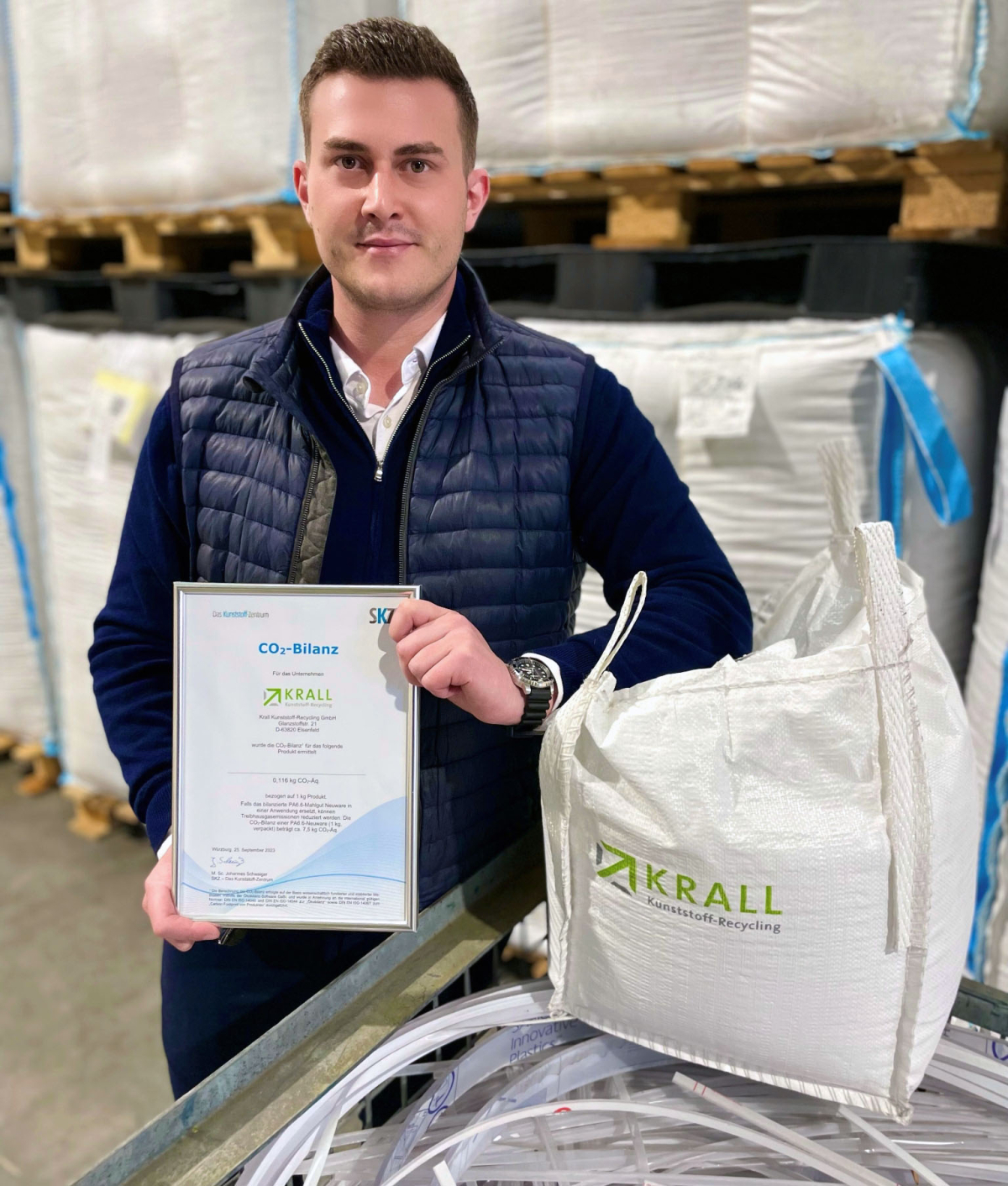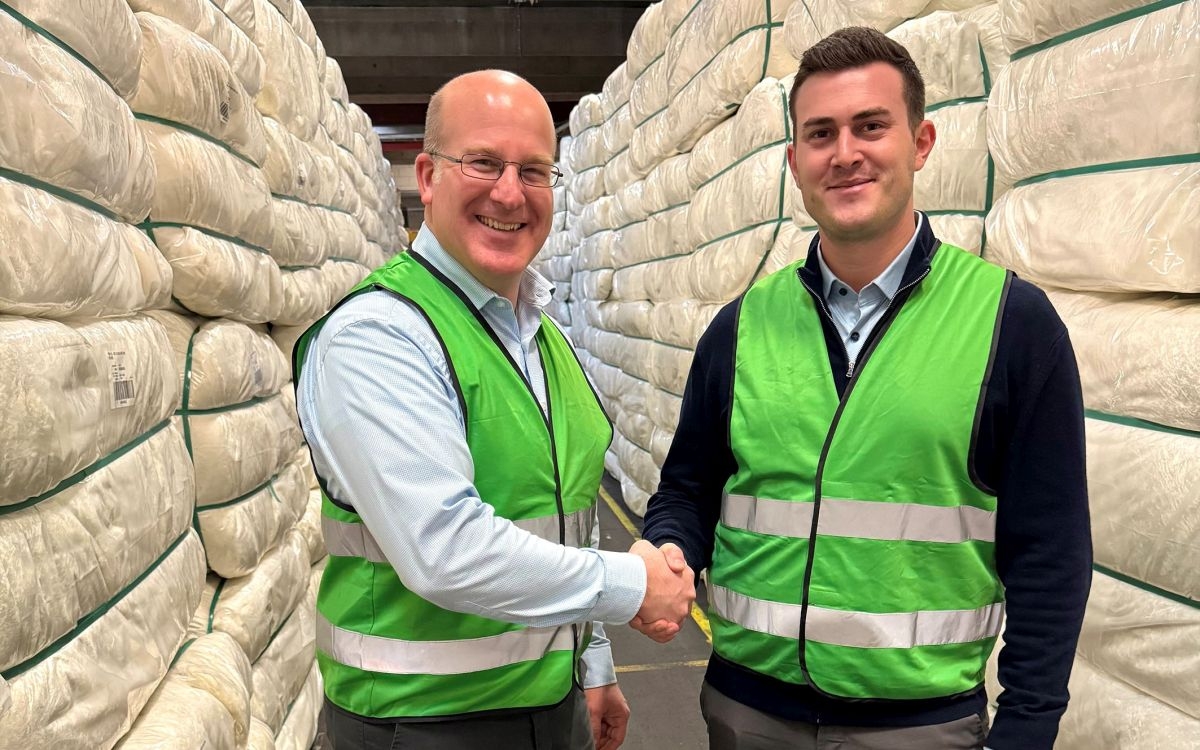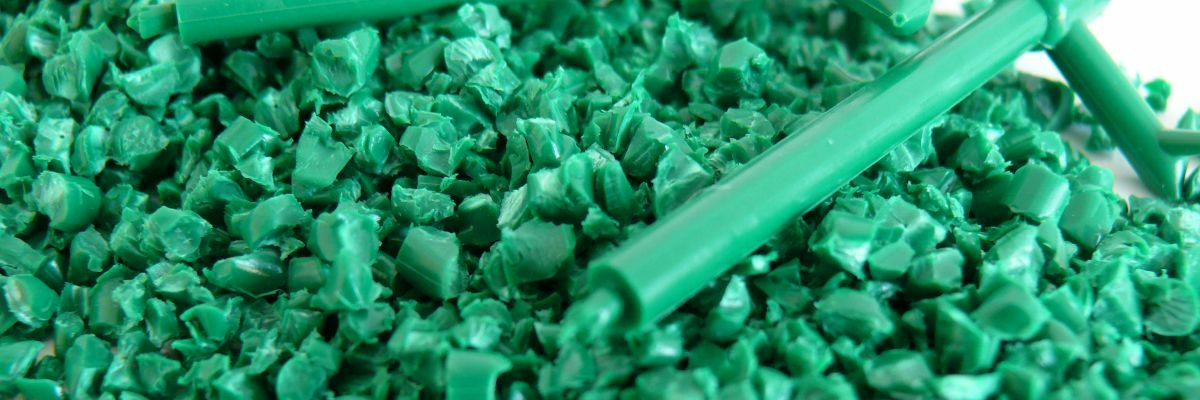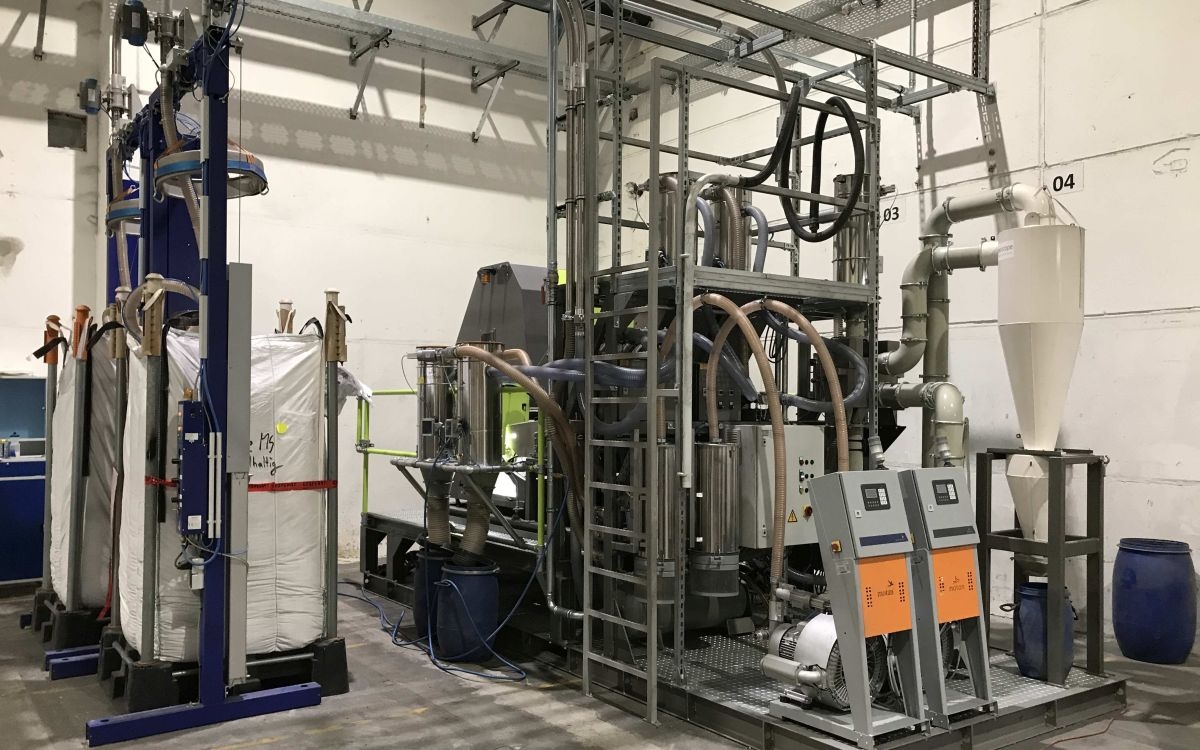Certificates underline environmental responsibility
16.04.2024By issuing sustainability certificates, Krall Kunststoff-Recycling, manufacturer of high-purity regrind, is now confirming to its suppliers from industry, trade and local authorities that they handle plastic waste responsibly, promote the circular economy and thus help to reduce CO2 emissions into the environment.
 Authorized signatory Louis Krall with one of the certificates issued by Krall Kunststoff-Recycling, which at the end of the year confirm the extent to which the respective supplier has contributed to reducing greenhouse gas emissions
Authorized signatory Louis Krall with one of the certificates issued by Krall Kunststoff-Recycling, which at the end of the year confirm the extent to which the respective supplier has contributed to reducing greenhouse gas emissions
© Krall Kunststoff-Recycling
The documents state the quantity of plastics delivered to Krall by the end of the year and, based on studies by “SKZ – Das Kunststoffzentrum”, the emissions generated during grinding, which, thanks to the photovoltaics used in the company, are significantly lower than with conventional energy supply. They also indicate the amount of greenhouse gases produced during the manufacture of a corresponding quantity of virgin material. Krall's sustainability certificates thus document the environmental awareness of suppliers and give them the opportunity to demonstrate and evaluate this commitment to third parties.
Authorized signatory Louis Krall: "Studies by an independent body confirm: The CO2 footprint of our ground material is only around 0.110 kg CO2-eq/kg. Of course, the many influencing factors and boundary conditions do not allow any absolute or percentage statements to be made about the greenhouse gas savings made possible by this compared to the approximately 300 to 400-fold value for the production of virgin material. However, we do allow ourselves to make a comparison because our regrinds are produced according to the strictest quality criteria and can therefore directly replace virgin material in many applications."
The carbon footprint was calculated at the Würzburg SKZ on the basis of scientifically sound and established methods using the GaBi life cycle assessment software and in accordance with the internationally valid standards DIN EN ISO 14040 and DIN EN ISO 14044 on "Life Cycle Assessment" and DIN EN ISO 14067 on the "Carbon Footprint of Products".
Managing Director Markus Krall adds: "Unfortunately, far too much plastic from a wide variety of applications still ends up in landfill or incineration. This is not only economically but even more so ecologically unreasonable. Polymethyl methacrylate (PMMA) and polycarbonate in particular, but also most other thermoplastics, are ideally suited to being returned to the material cycle as regrind. By using our service, our suppliers reduce the direct environmental impact of waste. In addition, thanks to our self-generated solar power, they also contribute indirectly to an improved environmental balance of the regrind. With our certificates, we want to make the possibilities of grinding better known and more attractive in order to further reduce the waste of raw materials."



